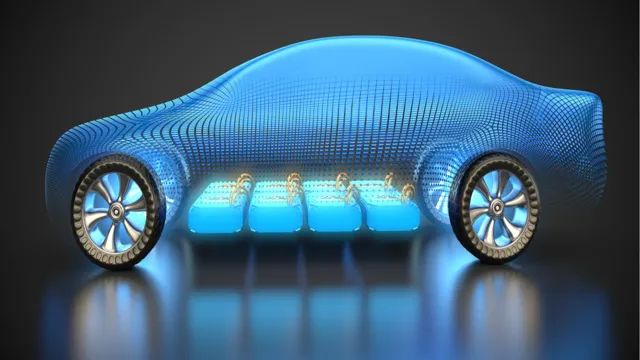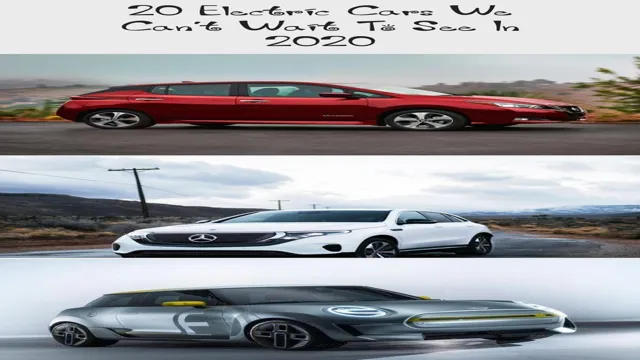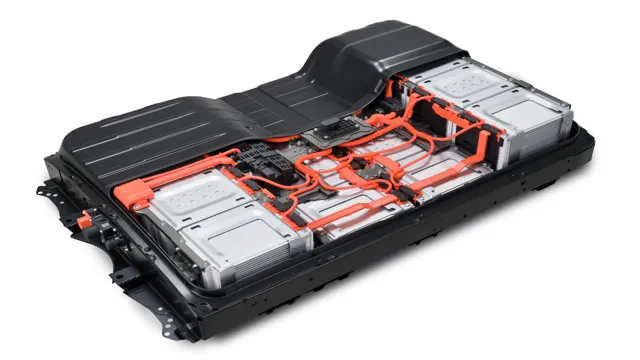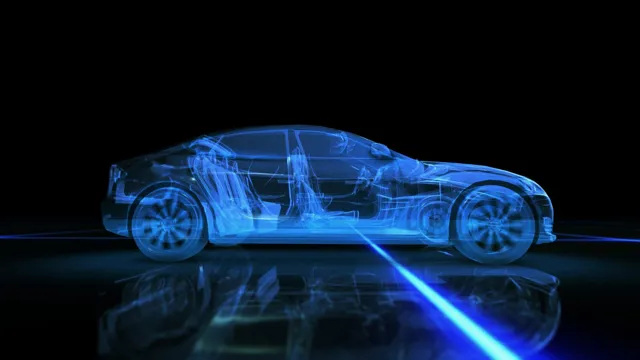Revving Up the Future: How Battery Technology is Powering Electric Cars
Electric vehicles (EVs) are becoming increasingly popular because they represent a shift towards renewable energy and a cleaner environment. One of the key factors that make EVs more energy-efficient than traditional vehicles is their battery technology. Battery technology has been rapidly advancing over the years, and this has led to the creation of more efficient and powerful batteries for EVs.
This improvement in battery technology has made electric cars more practical and affordable. Let’s dive deeper into how innovations in EV battery technology have changed the game for electric cars and helped make them more available to everyone.
Importance of Battery Technology
Battery technology is a critical component of electric cars and other green energy solutions. With the rise of electric vehicles and other forms of renewable energy, battery technology has become more important than ever. It is the key to ensuring that these technologies can operate efficiently and reliably, without causing harm to the environment.
There are several different types of batteries used in electric cars, including lithium-ion and nickel-metal hydride batteries. These batteries store energy from regenerative braking and other sources, ensuring that electric cars can travel for longer distances without needing to be recharged. Additionally, battery technology is critical to the development of more advanced forms of renewable energy, such as solar and wind power.
As battery technology continues to evolve, it will play an increasingly important role in reducing our carbon footprint and creating a more sustainable future.
Reducing Range Anxiety
The fear of running out of battery power on an electric vehicle, known as range anxiety, has hindered many people’s transition from traditional gas cars to greener alternatives. However, with the advancements in battery technology, reducing range anxiety is becoming easier. Longer-lasting and more powerful batteries are alleviating the worry of not being able to make it to a charging station.
Manufacturers like Tesla have been leading the charge, so to speak, in pushing battery boundaries, offering cars with ranges of over 300 miles per charge. Additionally, car companies are making everyday charging more accessible with more charging stations being installed across the country. As battery technology continues to improve, range anxiety will become a thing of the past, making electric vehicles a viable option for more people.
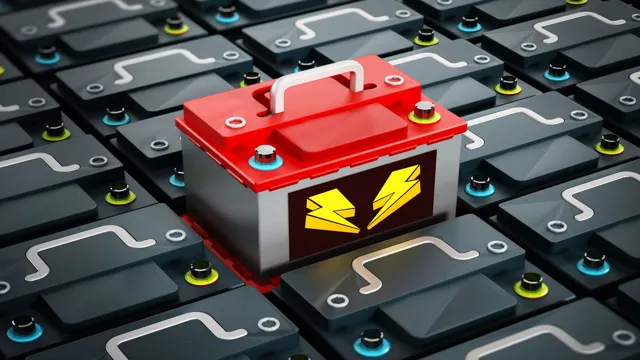
Lower Carbon Emissions
Battery technology plays a crucial role in lowering carbon emissions. The need to reduce greenhouse gas emissions to tackle climate change has led to a shift towards renewable energy sources like wind and solar power, which depend on batteries for energy storage. The development of batteries with higher energy densities and longer lifetimes is critical to making renewable energy more practical and cost-effective.
Additionally, batteries are essential in the transition towards electric vehicles, which emit fewer greenhouse gases than traditional fossil-fueled cars. With the use of battery technology, it is possible to shift from carbon-emitting power sources towards renewable energy and electric vehicles, resulting in lower carbon emissions. By investing in battery technology, we can not only reduce our carbon footprint but also ensure a sustainable future.
Current State of Battery Tech
Battery technology for electric cars has seen significant improvements in recent years, but there are still limitations to be overcome. Current battery technology relies on lithium-ion batteries, which have a limited energy density and can degrade over time. However, advancements in battery chemistry and manufacturing processes have led to increased energy density and improved battery life.
Tesla, for example, has been at the forefront of battery technology innovation, producing the Model S with a range of over 400 miles on a single charge. Despite these advancements, the cost of batteries remains a barrier for widespread adoption of electric cars. The race to develop more affordable and efficient battery technology is ongoing, with companies investing heavily in research and development to deliver the next breakthrough.
In the future, it is hoped that new battery technologies such as solid-state batteries and metal-air batteries will provide greater energy density, faster charging times, and longer battery life, making electric cars more accessible to a wider audience.
Lithium-ion Dominance
Lithium-ion batteries have become the dominant technology for portable electronics, electric vehicles, and stationary energy storage. These batteries boast high energy density, long cycle life, and fast charging times. They are also more environmentally friendly than their predecessors, such as lead-acid batteries, since they don’t contain toxic heavy metals.
While there are other types of batteries available, including nickel-cadmium and nickel-metal hydride, lithium-ion batteries are the most popular due to their superior performance and reliability. So, what makes lithium-ion batteries so unique? At their core, they rely on the movement of lithium ions between the cathode and anode to produce electrical energy. The use of lithium allows for a higher voltage and more energy storage capacity compared to other metals.
Additionally, their ability to be recharged hundreds or even thousands of times before showing any signs of degradation makes them ideal for consumer electronics and electric cars, where long service life is crucial. Despite their popularity, lithium-ion batteries are not without their limitations. For example, they are susceptible to thermal runaway if they overheat, which can lead to fires or explosions.
This has been a concern for electric car manufacturers and has led to increased safety regulations. Additionally, the materials used in lithium-ion batteries are not widely available and can be expensive, making them less accessible for certain applications. Nonetheless, the current state of battery technology is overwhelmingly dominated by lithium-ion cells.
As research continues, we may see advancements in other types of batteries, but for now, lithium-ion remains the go-to choice for portable and stationary power needs.
Emerging Technologies
Battery technology is constantly improving, but where does it currently stand? Traditional lithium-ion batteries have been the standard for a while, but scientists have been searching for something that can store more energy and charge faster. Currently, researchers are exploring solid-state batteries, which use a solid electrolyte instead of the liquid electrolyte used in traditional batteries. Solid-state batteries have the potential to store more energy, last longer, and be safer than current lithium-ion batteries.
Another emerging technology is sodium-ion batteries, which use sodium ions to store and release energy rather than lithium ions. While still in the early stages of development, sodium-ion batteries could be a more environmentally friendly option as sodium is more abundant than lithium. However, both these technologies are still in development and have not hit the mainstream market yet.
For now, traditional lithium-ion batteries are still the most common option for powering our devices, but as technology advances, there may be more efficient and sustainable options in the near future.
Challenges and Limitations
The current state of battery technology presents various challenges and limitations that need to be addressed to meet the growing demands of the market. Although lithium-ion batteries are the most widely used in various applications such as electric vehicles and portable electronics, their limitations include a relatively short lifespan, safety concerns, and capacity constraints. Additionally, the manufacturing process of these batteries involves using cobalt, a rare and expensive material, which limits their scalability and increases their production costs.
As a result, researchers are exploring alternative materials such as sodium-ion, solid-state, and flow batteries, which offer promising solutions to overcome the limitations of lithium-ion batteries. Despite the challenges, the development of efficient and sustainable battery technology is crucial to drive the transition towards a greener and more sustainable future.
Future of Battery Tech
The future of battery technology for electric cars is looking bright with the continuous advancements in the field. Lithium-ion batteries have been the preferred choice for electric vehicles due to their high energy density, reliability, and long cycle life. However, researchers are now exploring alternative battery chemistries such as solid-state batteries and lithium-sulfur batteries to improve energy storage capacity and reduce the cost of production.
Solid-state batteries offer higher capacity and faster charging times, while lithium-sulfur batteries offer even higher energy density. As the demand for electric vehicles grows, innovation in battery technology will continue to pave the way for longer ranges, faster charging times, and lower costs, making electric vehicles even more accessible and sustainable for the average consumer. Overall, the future of battery technology for electric cars is exciting, and we can’t wait to see what advancements will be made in the coming years.
Advancements in Solid-state Batteries
Solid-state batteries are the future of battery tech, and advancements in this field are paving the way for exciting developments in the near future. These batteries offer a higher energy density, faster charging times, and increased safety due to the absence of flammable liquid electrolytes present in conventional lithium-ion batteries. The elimination of liquid electrolytes also means that solid-state batteries are less prone to leakage and degradation over time.
One of the biggest challenges in developing solid-state batteries has been finding suitable materials to replace the liquid electrolytes. However, researchers have made significant progress in recent years, with the development of solid-state electrolytes that can conduct ions as well as liquid electrolytes. While there is still much work to be done, the potential for solid-state batteries to revolutionize the energy storage industry is immense.
We can expect to see these batteries powering everything from electric vehicles to smartphones in the years to come.
Exploring Alternative Materials
The future of battery technology is an exciting topic, with advancements being made all the time. One such development is the use of alternative materials in the construction of batteries. Traditional lithium-ion batteries are made from materials like cobalt and nickel, which can be costly and environmentally damaging to mine.
Alternative materials like sodium and potassium have been explored as potential substitutes, with promising results. These materials are abundant and easier to source, making them a more sustainable option for the future of battery technology. Additionally, researchers are also exploring the use of organic materials like graphene and carbon nanotubes, which could lead to faster charging times and longer battery life.
With the continued exploration of alternative materials, the future of battery technology looks bright.
Conclusion: The Future is Bright
In conclusion, battery technology is the backbone of electric cars. The advancements in battery technology have set an unparalleled pace in the automotive industry, pushing the boundaries of what was previously thought impossible. The development of electric cars has provided an eco-friendly alternative to traditional gasoline-powered vehicles, reducing the carbon footprint and improving sustainability.
With electric cars gaining popularity, the future looks bright for battery technology, and we can only hope for more witty and clever inventions to come. After all, when it comes to battery technology, the sky’s the limit!”
FAQs
What is battery technology for electric cars?
Battery technology for electric cars refers to the specific type of batteries used as the primary source of energy in electric vehicles.
How does battery technology help make electric cars eco-friendly?
Battery technology helps make electric cars eco-friendly by reducing the emission of harmful greenhouse gases associated with conventional vehicles.
What are the different types of batteries that are used in electric cars?
The most common types of batteries used in electric cars include Lead-Acid, Nickel-Metal Hydride (NiMH), and Lithium-ion.
Can battery technology improve the range of electric cars?
Yes, advancements in battery technology are aimed at improving the range of electric cars, making them more practical for everyday use.
